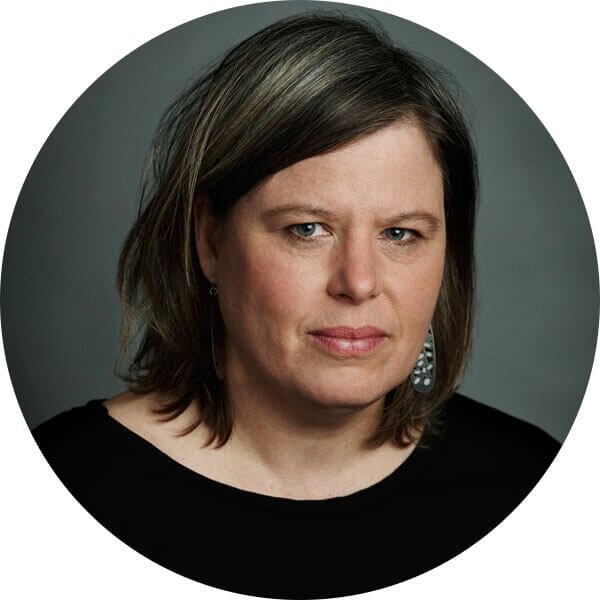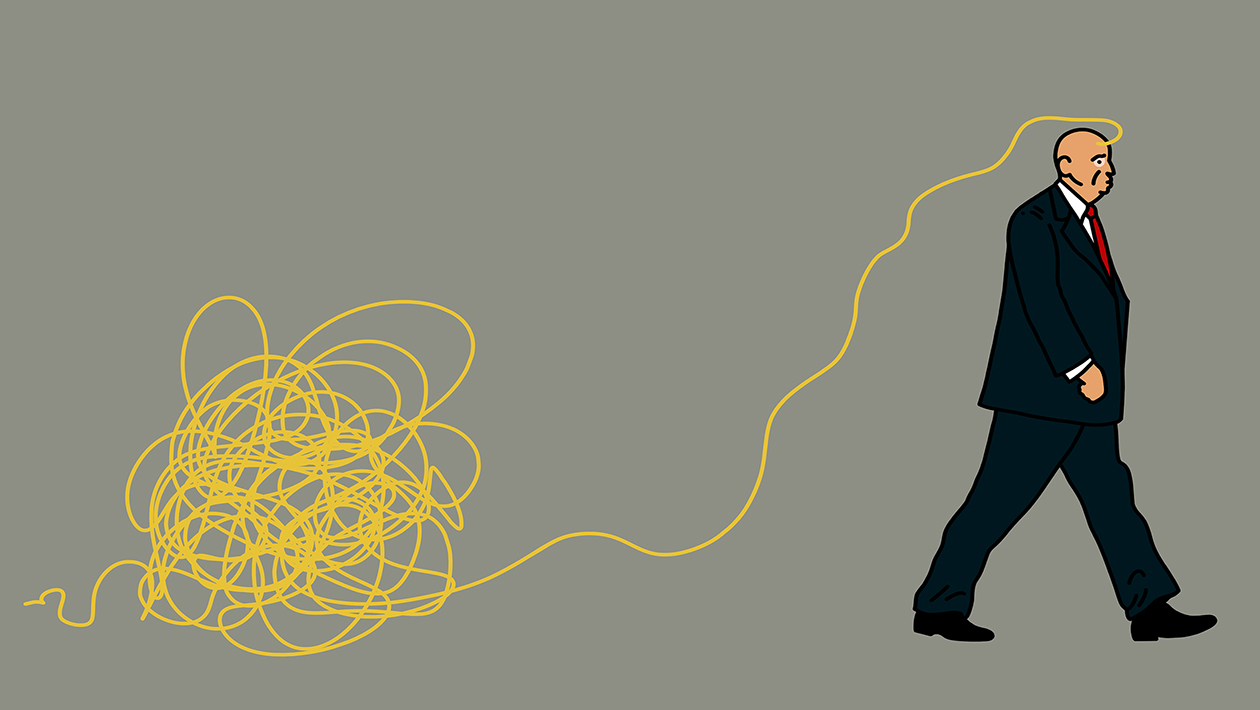Trump’s Final Chapter: ‘The Butterfly Effect,’ by Kathryn Walsh Kuitenbrouwer
The author of ‘All The Broken Things’ writes a short story on the fictional final chapter of the Donald Trump presidency
Donald Trump with his hair unravelling
Share
 Amid turbulence and turmoil in Washington, Canadian authors let their imaginations take flight: what would the last days of Donald Trump’s presidency look like? Read more short stories from the Trump’s Final Chapter project here.
Amid turbulence and turmoil in Washington, Canadian authors let their imaginations take flight: what would the last days of Donald Trump’s presidency look like? Read more short stories from the Trump’s Final Chapter project here.
The Butterfly Effect
That spring, the U.S. Army Corps of Engineers drove right in and staked a claim and got to work cutting brush. Hell, there was no one to stop them, and anyway, it was just another patch of desert along the Rio Grande. It didn’t occur to them that it might be private property. George, who was interning as a summer biochemistry student, was just doing his job. He wanted to eventually work for the CoE for two reasons. One, they had pretty good benefits; and two, he wanted to help people. What’s more, the corps was an equal-opportunity employer, and so he met folks from all different backgrounds. He knew they were preparing the ground to build Trump’s wall, but he was just following orders. At the time, he thought that was good enough.
Then this monarch butterfly came flapping through. It was migrating up from Mexico, just as free as you please. They say the flutter of a butterfly’s wing in Brazil will eventually cause a tornado in Texas, George knew, but he never did believe that kind of claptrap. There are a lot of things that he was newly learning.
It wasn’t long before another monarch flitted by. His colleague, Miranda, thought they might be viceroys, but George knew what they were looking at. By mid-afternoon, they began to notice something truly rare: these two butterflies, caught on some marvellous airstream, gave way to more and more of their kind. The air was thick with orange-and-black beauties bashing their tremulous wings against the faint wind. Butterflies moved past them north in a kind of miraculous storm—not a tornado, but more like God’s paint, the brushstroke of a singular genius.
“It is like a hard-won love made manifest,” said Miranda.
She always was given to sentiment. In spite of this, George had to admit that her comment made something small in him that he had not dared to nurture in years and years swell in capacity. For her part, Miranda thought she might plant a butterfly-friendly shrub in her backyard or maybe put in some feeding stations. She thought she might plant milkweed. She thought, how beautiful.
George said, “That butterfly flapping up a tornado thing is hogwash, right?”
“Friend,” Miranda said, “that is pure science. That there is chaos theory.” Then she waggled her finger in front of her face and said, “Na–uh,” and they laughed because she wasn’t even from the South and couldn’t really do the accent. She was from Brooklyn, and her parents were Danish. It was nice to laugh in those hard days, and Miranda and George appreciated the fleeting moment as what seemed like thousands of monarchs pulsed past them along the updraft.
Looking back on it now, this was the precise moment George fell in love with Miranda. So in some small way, the butterfly effect worked, and right away. And now, all these months later, they planned to wed—just as soon as the civil unrest quelled, once the coup subsided and elections could proceed.
It had taken two full months for the butterflies to reach Washington. The president stopped in the middle of a speech he was delivering in the Rose Garden to a bewildered standing-room-only press corps. There was so much going on in the news in that week. The threat of nuclear war with North Korea, the clashing protest in Charlottesville and that poor white girl and—there was nothing but gutting news in those days. Trump had been tweeting so much that Miranda joked how “he must have some wicked carpal tunnel, that man.” Anyway, right then at that press conference, smack-dab in the vitriolic middle of delivering the biggest wad of gassy nonsense, Trump stopped and suddenly smiled in a way that felt authentic. A single monarch butterfly undulated above him. A cry of joy was heard. Some say now that this cry emanated from the president’s lips. The whole entire episode started, they say, with an immense feeling of goodwill. They say a resonant breeze lifted the soft, downy body hair of everyone in attendance. That’s how it started but it didn’t end well. You don’t put tornados and Lepidoptera in the same file. You don’t think cause and effect. You think butterflies are benign but they are smarter than you think and prone to delight.
It was as if the butterflies had a master plan; it was also as if the president acquiesced to this higher power. From every camera angle on every Youtube video this is what could be seen: cascades of orange-and-black butterflies alighted on the summer-weight, be-suited arm of the most powerful politician in the known world until first his clothes and then his hands and face were obfuscated. No one put up so much as a fight. Some in attendance fell to their knees in what looked like benediction. Trump was completely covered in thrumming butterflies. It lasted a minute, no more. In one image, the president seemed to lilt a little to the left and his mouth opened into a twisted O. Then, en masse, the migrant butterflies rose and danced off—a strange, insect susurration. Trump’s face was utterly transformed. The last thing he said before he went quiet was “Thank you and goodbye,” and if that wasn’t the strangest part, George didn’t know what was.
“Folks are always handsomer when they are happy,” Miranda said, “and here is the God-given proof.” And it was true. The former president and his cronies smile all day now and they are handsomely happy, even if their jobs were stripped by the military. They smile while the wind churns up countless miscreant tornadoes and while George and Miranda of the CoE stick their measly thumbs in every sprung dam and mop up the spills from each torqued and cracked oil pipe. There is more chaos now than you can shake a stick at. But the Star Cactus and the Mesquite and the Albert’s Black Lace have begun to grow back, and where there was once a wall planned, the ocelots and the jaguarundis scamper unhindered.
The other day, Miranda and George saw the monarchs winging south—and George’s heart fluttered open again and again. Nature swells, does it not? It wants to take up space.
Kathryn Walsh Kuitenbrouwer is the bestselling author of the novel All The Broken Things.
Tap below to read more from the Trump’s Final Chapter project:
